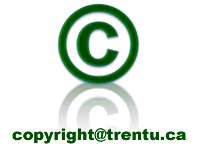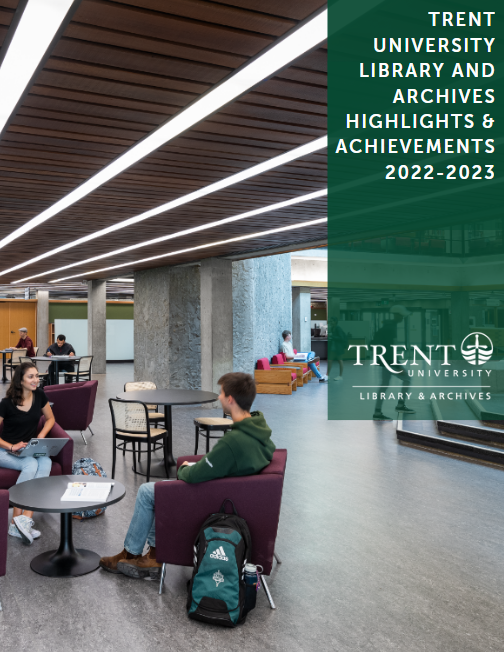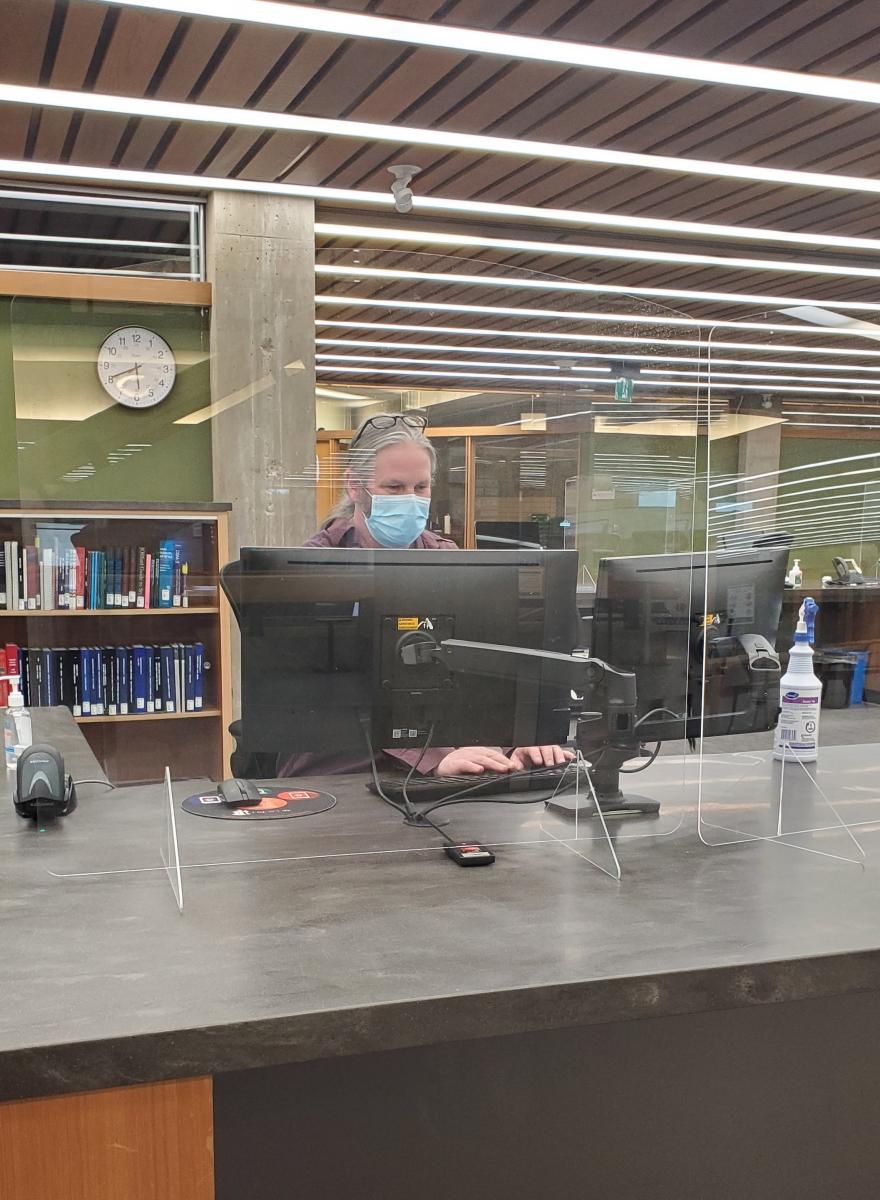
Trent University is committed to the advancement and dissemination of knowledge. As such, Trent endeavours to provide members of the University community with access to a broad range of copyrighted works while respecting the intellectual property rights of copyright holders. In keeping with its commitment to provide broad access and exposure to copyrighted works in a manner that facilitates evolving educational methodologies, the University has established these guidelines as a resource for members of the Trent community. As both consumers and creators of intellectual property, instructors, students and staff are obligated to abide by copyright law and use materials in a fair and legal manner.
The Trent Library provides access to a vast number of copyrighted works, both digitally and in the collection, through its purchase of licensed material. Other resources which fall outside of Trent's licensed materials may be used in certain circumstances without permission from the copyright owner, according to various sections in the Copyright Act, including the fair dealing exception. As such, those who are teaching, learning, and working at Trent are required to abide by copyright law with respect to the intellectual property rights of others.
Instructors are encouraged to make requisite materials available to students provided that in doing so, they are respecting the rights of copyright holders and complying with copyright. There are various statutory exceptions that allow instructors, staff, and students to utilize copyrighted works for applicable purposes such as research, private study, and education. It is important to remember that though these exceptions exist, the use of copyrighted works is also subject to possible limitations as indicated by the Terms of Use associated with various works and depending on the University's agreement with the copyright holder. For more information on what you can and cannot do when it comes to reproducing resources that Trent provides through one of its many licensing agreements, please see Trent's License Information Database.
Statutory Exceptions
An individual may only reproduce a portion of a copyrighted work without receiving permission from the copyright holder if it is allowable under a statutory exception in the Copyright Act. This means it falls within the fair dealing exception or one of the other exceptions.
Fair Dealing Guidelines
-
An individual wishing to rely on the fair dealing exception to copy, reproduce, perform, communicate, display or otherwise deal with a copyrighted work, must comply with the terms of the fair dealing guidelines, and ensure that he or she does not circumvent any digital lock protecting the copyrighted work.
- Works reproduced according to the fair dealing guidelines do not give users the right to further reproduced them.
Digital Locks
When copying, reproducing, performing, communicating, displaying, distributing, or otherwise dealing with any copyrighted work, individuals must not circumvent any digital lock to access such copyrighted work unless such person is authorized by the copyright owner to do so.
Infringement
Copyright infringement is a serious matter that can result in legal liability for you personally, as well as for Trent University.
Definitions
As used in these Copyright Requirements, the following defined terms shall have the meanings provided below:
- "Circumvent" means, in respect of a Digital Lock, to descramble a scrambled work, decrypt an encrypted work or otherwise avoid, bypass, remove, deactivate or impair the Digital Lock.
- "Copyright Act" means the Copyright Act, R.S.C. 1985, c. C-42, as amended from time to time.
- "Copyrighted Work" means an original literary, dramatic, musical and artistic work including without limitation computer programs, translations, annotations, and compilations of works, in which copyright subsists, unless copyright in such a work has expired in accordance with the Copyright Act.
- "Digital Lock" means any effective technology, device, or component that, in the ordinary course of its operation, controls the access to a work, a performer's performance fixed in a sounds recording, and whore use is authorized by the copyright owner.
- "Fair Dealing Exception" means the exceptions to copyright infringement provided under the Sections 29, 29.1, 29.2 of the Copyright Act, which allows any person to make a copy of a copyrighted work for the allowable purposes of research, private study, education, satire, parody, criticism, review, or news reporting.
- "Fair Dealing Guidelines" means the Fair Dealing Guidelines for Trent Faculty, Staff, and Students.
- "Instructors" means any person who teaches at or under the auspices of Trent, including without limitation, adjunct and clinical faculty, lecturers, instructors, and teaching assistants. "Staff" means full-time and part-time staff members of Trent and any other person who works under the auspices of Trent.
- "Statutory Exceptions" means various exceptions under the Copyright Act that permit certain things to be done by educational institutions, or persons acting under the authority of an educational institution, that would otherwise infringe copyright. These include, without limitation, the Fair Dealing Exception.
- "Trent's License Information Database" means a license agreement between Trent and the author or copyright holder, a publisher, or a publisher's representative.
Disclaimer
These materials are developed and adapted from the University of British Columbia (the "UBC materials") and are used with consent of the University of British Columbia ("UBC"). They are used for informational purposes only and should not be relied upon as legal advice. UBC takes no responsibility or liability for any use of these materials, of the UBC materials, including changes or modifications made to the UBC materials.



